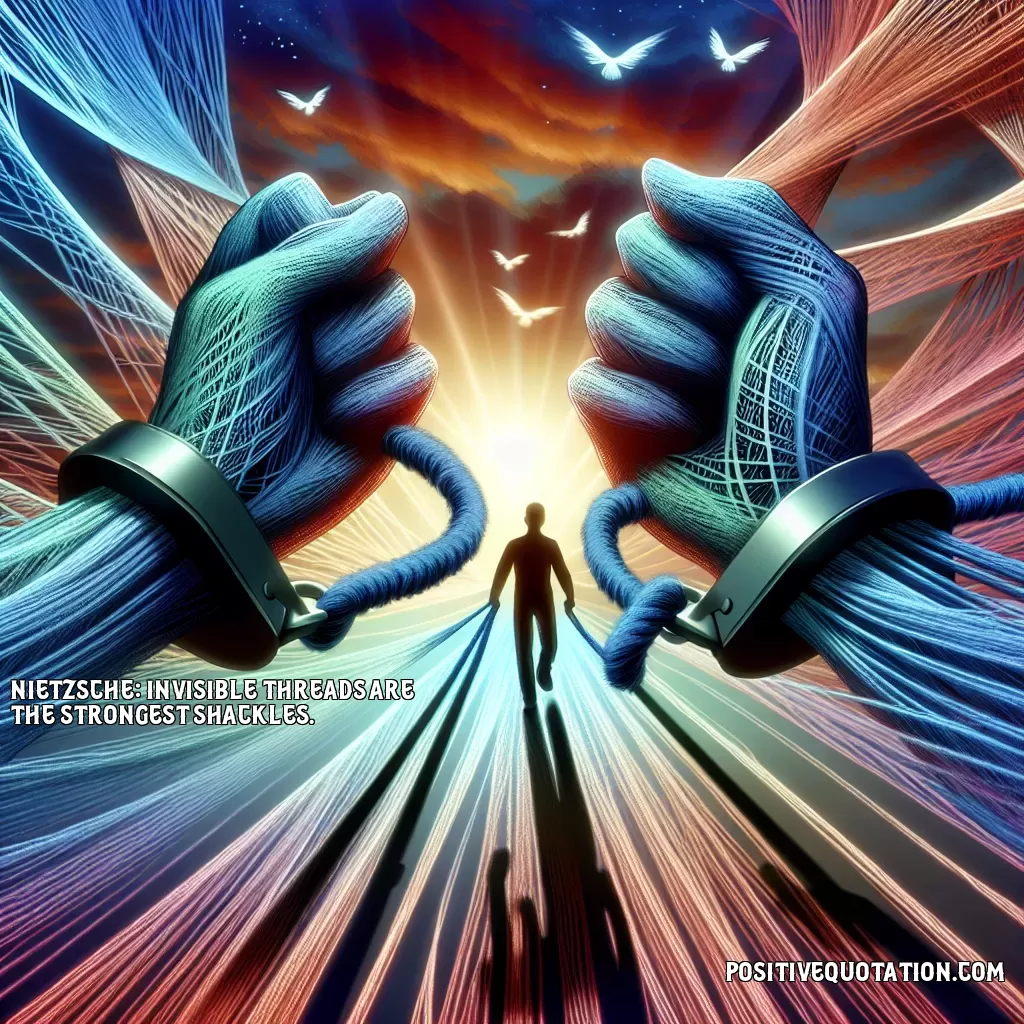
Nietzsche: Invisible threads are the strongest shackles.
Author: Friedrich Nietzsche
👁️ 10 views
Friedrich Nietzsche's quote, "Invisible threads are the strongest shackles," offers a profound commentary on the unseen forces that bind individuals and shape their lives. At first glance, shackles suggest physical restraints, tangible and visible limits placed upon a person. However, Nietzsche’s invocation of "invisible threads" shifts the focus to those intangible, often psychological or social, constraints that exert an even greater influence over human behavior and freedom. These "invisible threads" could represent societal norms, cultural expectations, or internalized beliefs that subtly yet powerfully dictate actions and choices. Unlike physical bonds, which are obvious and can be actively resisted or broken, these unseen ones are insidious, often going unnoticed and unquestioned. They mold individuals’ decisions, self-conceptions, and worldviews, thereby exerting control through habitual conformity rather than overt coercion. Nietzsche, known for his critique of traditional morality and herd mentality, implies that individuals are often unaware of the depths of their own conditioning. Such influences might be family values instilled from childhood, societal roles and expectations, or unexamined ideologies and dogmas. Because they are not immediately visible, challenging and freeing oneself from these constraints requires significant introspection and courage. Moreover, Nietzsche’s statement highlights the paradox of perceived freedom in modern society. While one may believe they are free, they might still be ensnared by these invisible forces that prevent them from becoming truly autonomous beings. Thus, Nietzsche encourages a relentless quest for self-awareness and authenticity, urging individuals to recognize and critically assess the hidden forces that shape their lives, to ultimately transcend them and achieve genuine freedom.
Quote By: Friedrich Nietzsche
Friedrich Nietzsche (1844-1900) was a German philosopher, cultural critic, and poet known for his provocative ideas on morality, religion, and the nature of existence. He famously declared the "death of God" and introduced concepts such as the "Übermensch" and "eternal recurrence," challenging traditional values and pushing for a re-evaluation of societal beliefs. His influential works, including "Thus Spoke Zarathustra" and "Beyond Good and Evil," have left a lasting impact on philosophy, literature, and psychology.
Bio added on: 2025-02-15 02:56:26